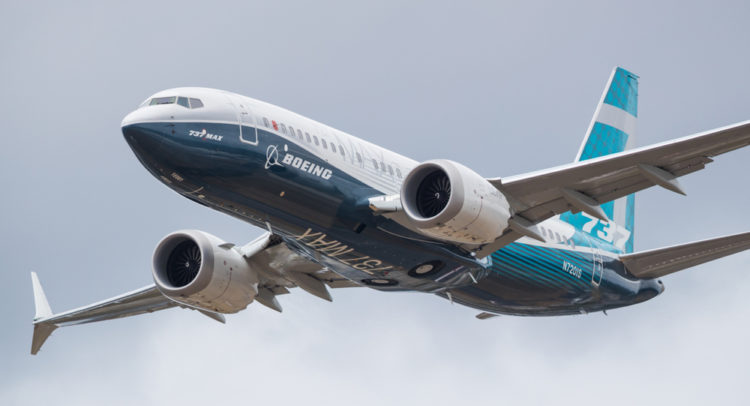Boeing has itself a target for its commercial airplanes to fly on 100% sustainable aviation biofuel by 2030 in an effort to reduce carbon emissions.
Boeing (BA) disclosed that it has already conducted test flights replacing petroleum jet fuel with 100% biofuels to address the “urgent challenge of climate change.”
The aerospace giant has worked with airlines, engine manufacturers and others to conduct biofuel test flights starting in 2008 and gained approval in 2011. In 2018, Boeing deployed the world’s first commercial airplane flight using 100% biofuels with a 777 freighter, in collaboration with FedEx Express.
Airplanes will need to be capable of flying 100% on biofuels well before 2050 in order to meet the aviation’s commitment for reducing carbon emissions by 50% from 2005 levels by 2050, Boeing noted.
“Our industry and customers are committed to addressing climate change, and sustainable aviation fuels are the safest and most measurable solution to reduce aviation carbon emissions in the coming decades,” said Boeing Commercial Airplanes CEO Stan Deal. “We’re committed to working with regulators, engine companies and other key stakeholders to ensure our airplanes and eventually our industry can fly entirely on sustainable jet fuels.”
Today, sustainable aviation fuels are mixed directly with jet fuel on a ratio of up to 50/50, which is the maximum allowed under current fuel regulations. Going forward, Boeing plans to work with regulatory bodies across the industry to determine what changes are required for its current and future commercial airplanes to fly on 100% biofuel, and what needs to be done to raise the current ratio limit.
According to the US Department of Energy and other scientific studies, sustainable aviation fuels reduce CO2 emissions by up to 80% over the fuel’s life cycle with the potential to reach 100% in the future, Boeing said. Sustainable aviation fuels can be made from a wide variety of feedstocks, including non-edible plants, agricultural and forestry waste, non-recyclable household waste, industrial plant off-gassing and other sources, the planemaker added.
Coming now to BA’s performance, shares have seen some recovery. The stock is up 23% over the past three months after plunging 35% over the past year as COVID-19 travel restrictions have resulted in a deep cut in the number of commercial jet orders. (See BA stock analysis on TipRanks)
Boeing reported earlier this month that fourth-quarter deliveries included 31 of its 737 Max aircraft, which had been grounded for a 20-month period, following two fatal crashes.
In reaction to the delivery report, Berenberg Bank analyst Andrew Gollan lifted BA’s rating to Hold from Sell and raised the price target to $215 from $150, as he believes that the uptick in 737 deliveries “marks a turning point” for a potential recovery.
Gollan views the stock as fairly valued, with “sentiment risks balanced between recovery potential and ongoing near-term headwinds and virus uncertainty.”
“Now that Max deliveries are underway, we do not expect significant new charges. We estimate that $8bn of cash costs remain outstanding, the majority of which will be paid in 2021. The cash burden then recedes and, helped by rising volumes, Boeing’s cash generation should greatly improve from 2022,” the analyst concluded.
The rest of the Street is mostly in line with Gollan’s outlook. The Hold analyst consensus shows 9 Holds, 4 Sells, and 8 Buys. That’s with an average analyst price target of $227.17, indicating 10% upside potential lies ahead over the coming 12 months.

Related News:
AT&T In Talks To Sell Minority Stake In DirecTV To TPG – Report
GlobalWafers Hikes Takeover Offer For Siltronic By 16%
Kansas City Sees Double-Digit Sales Growth In 2021









